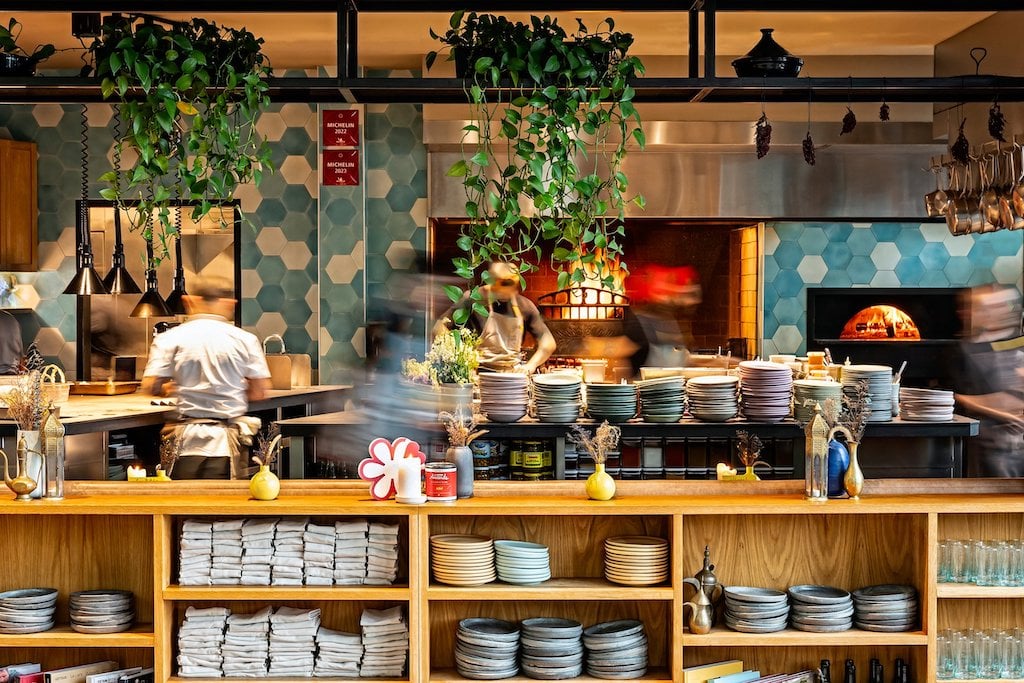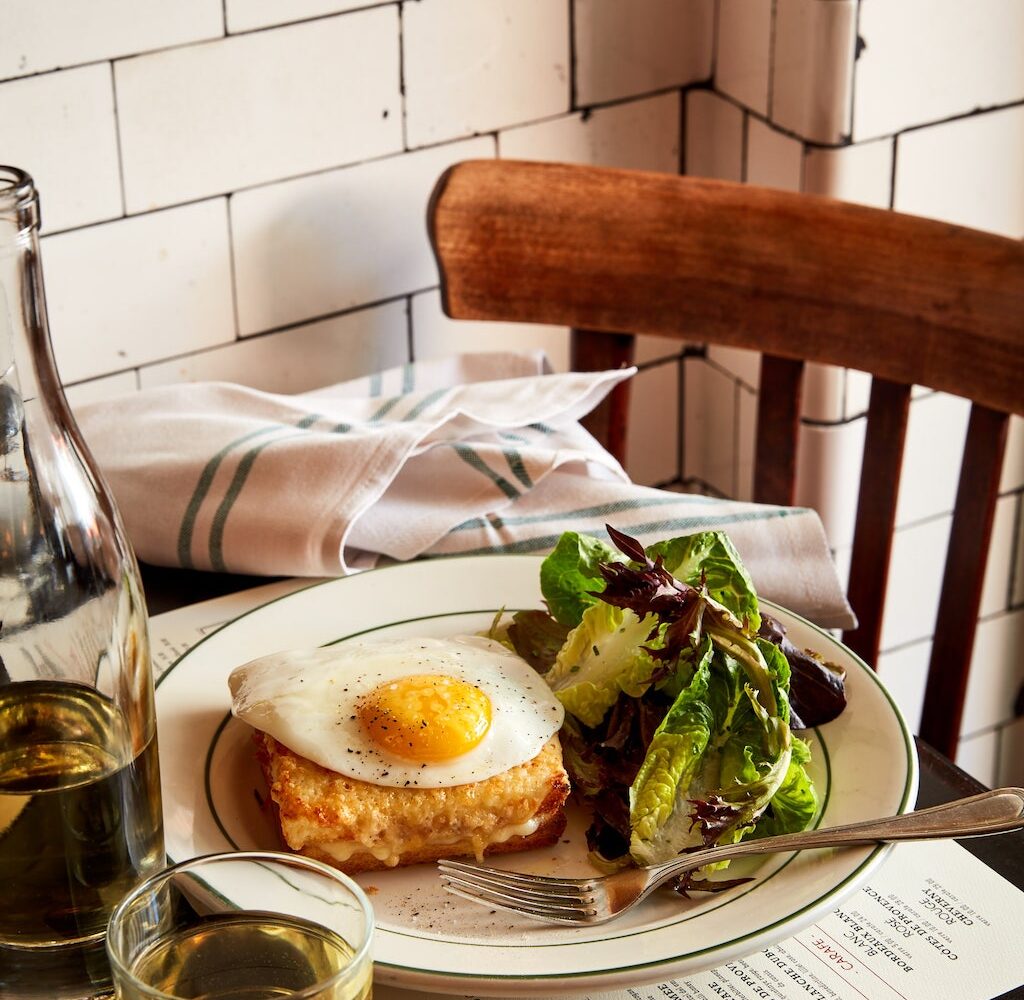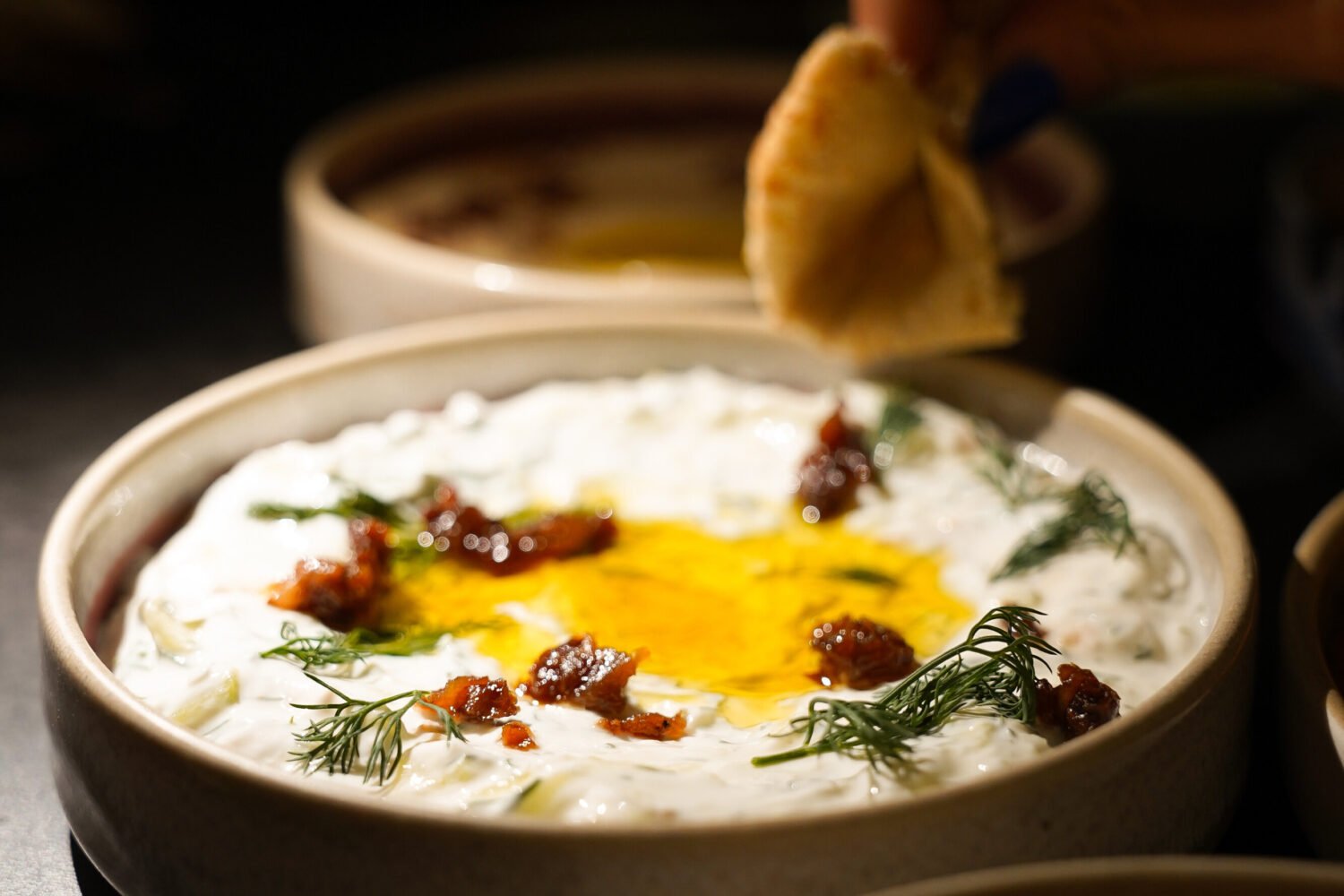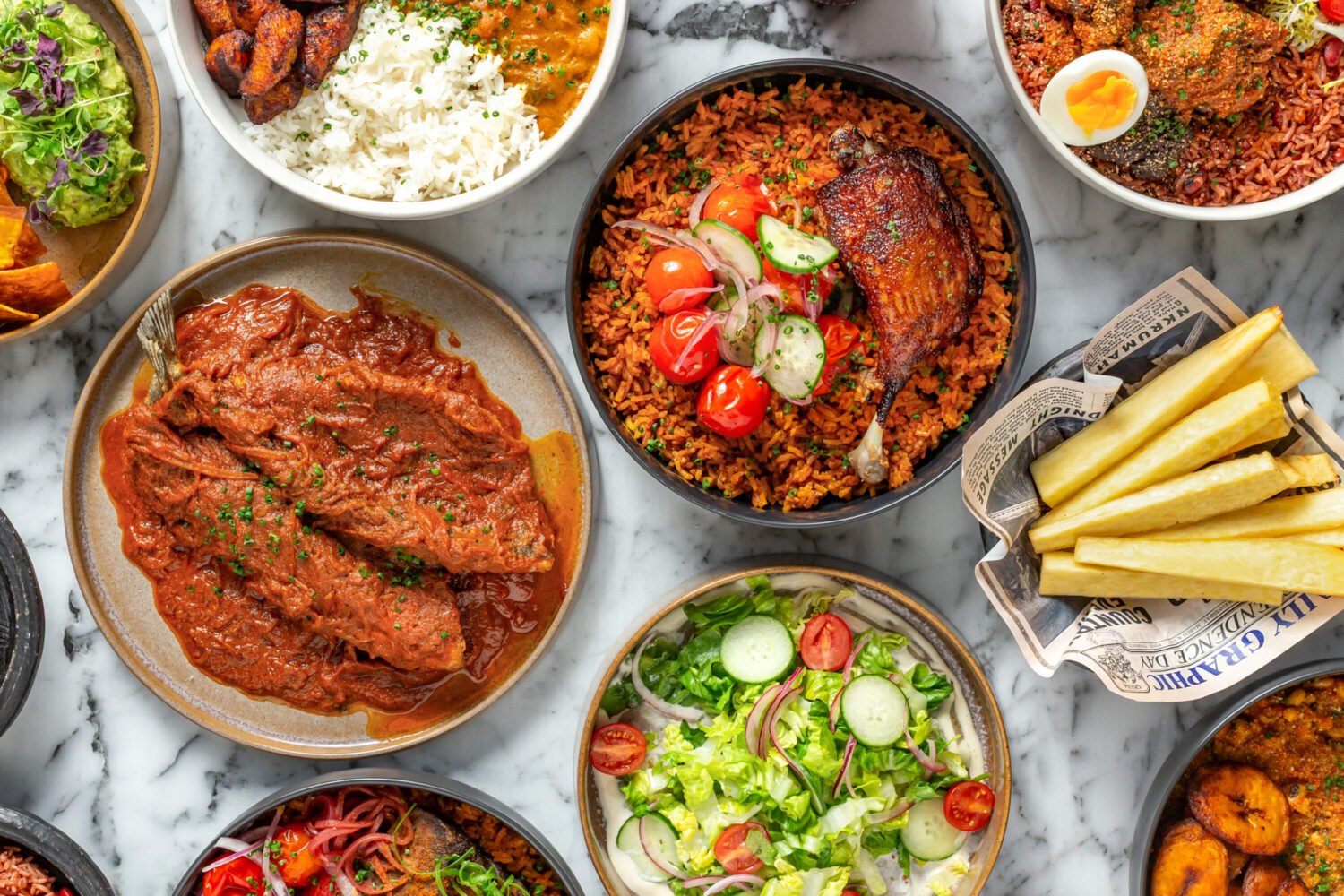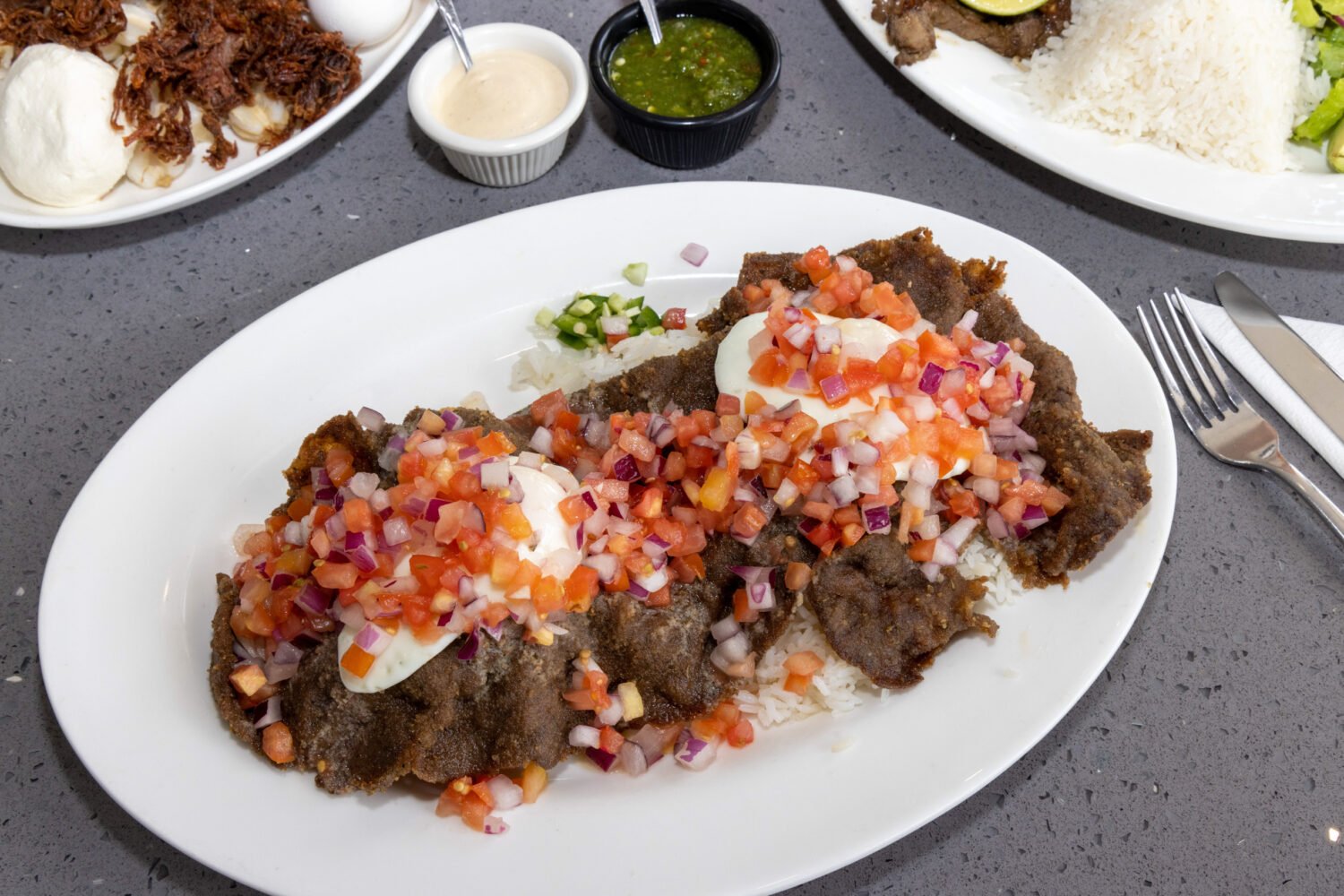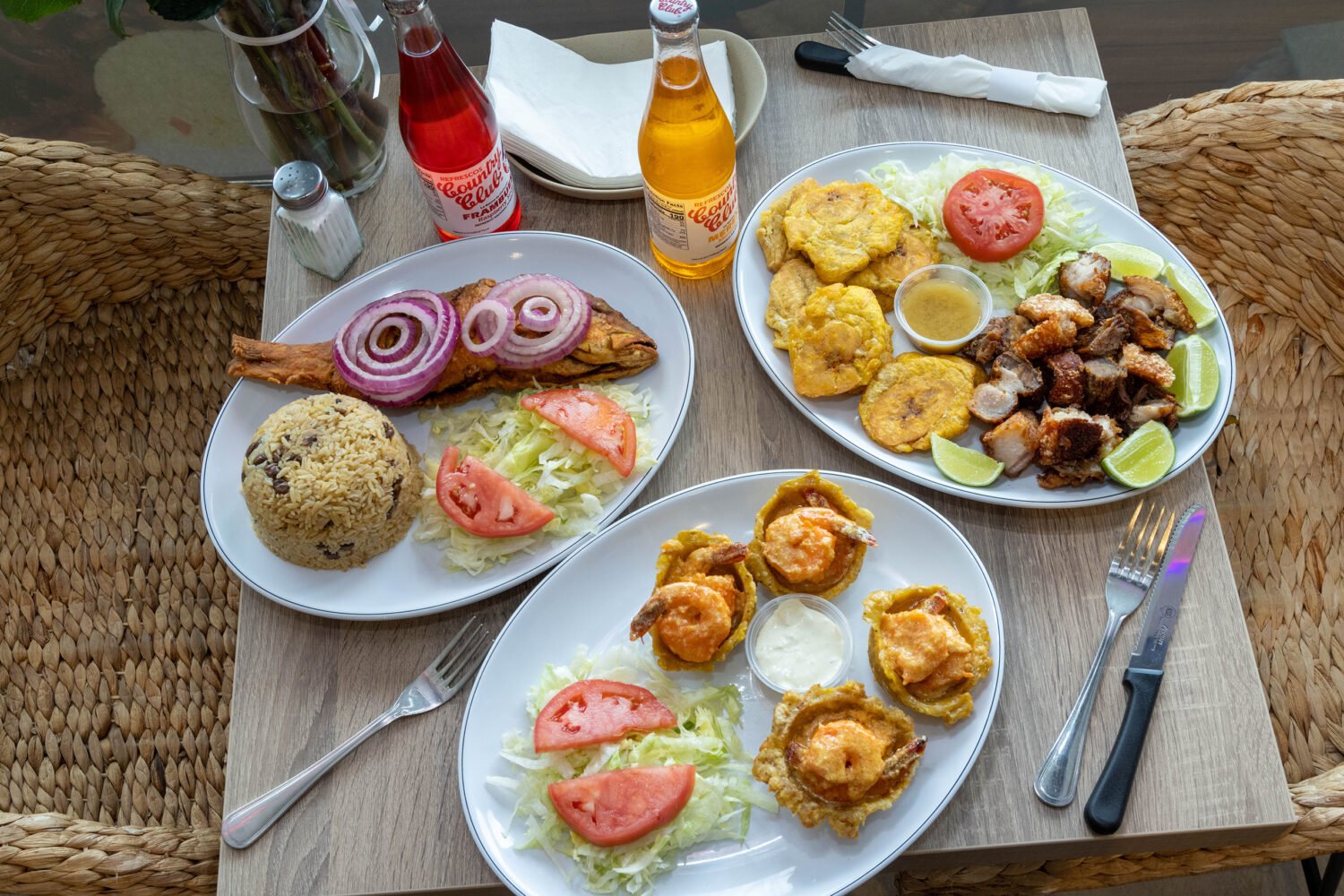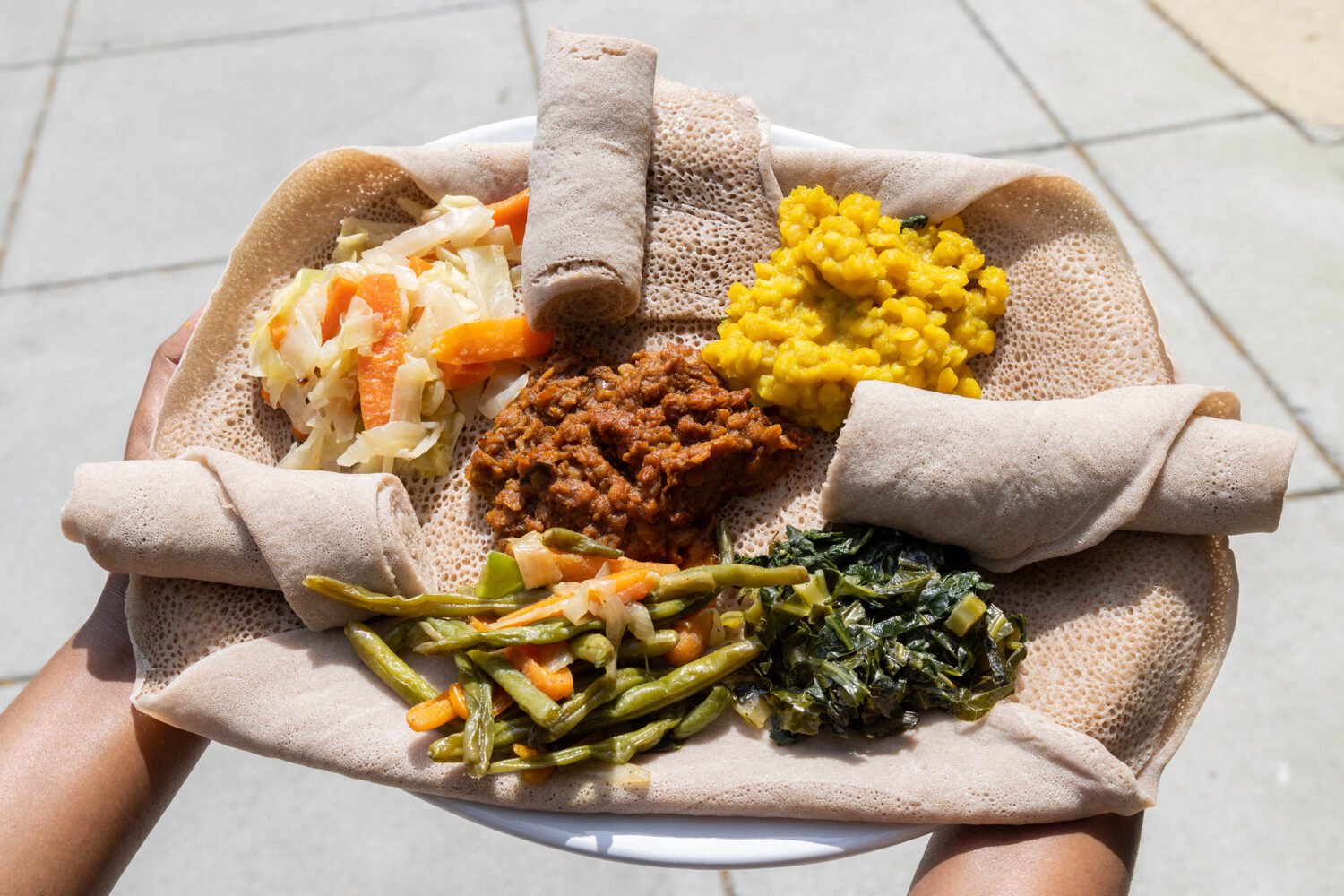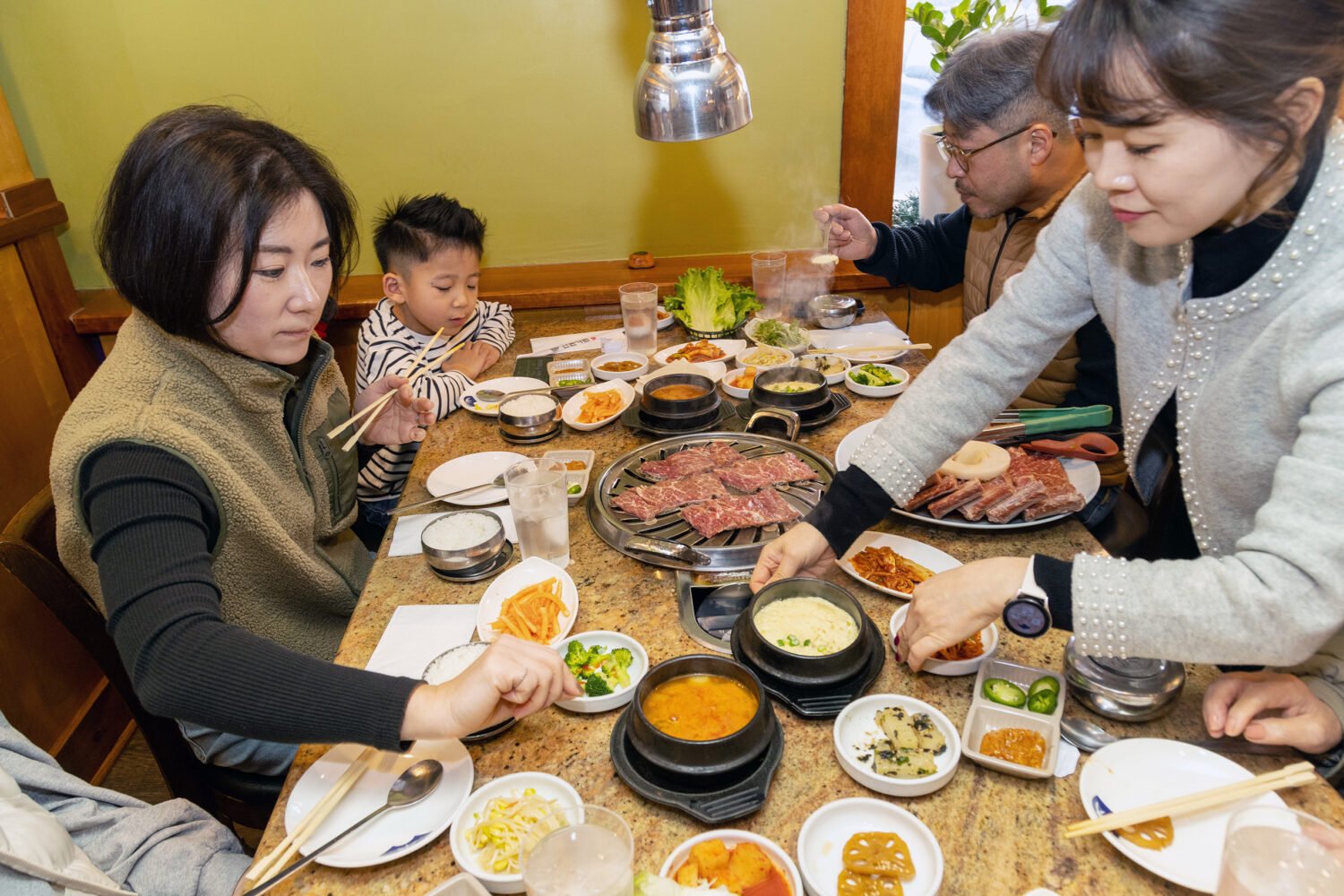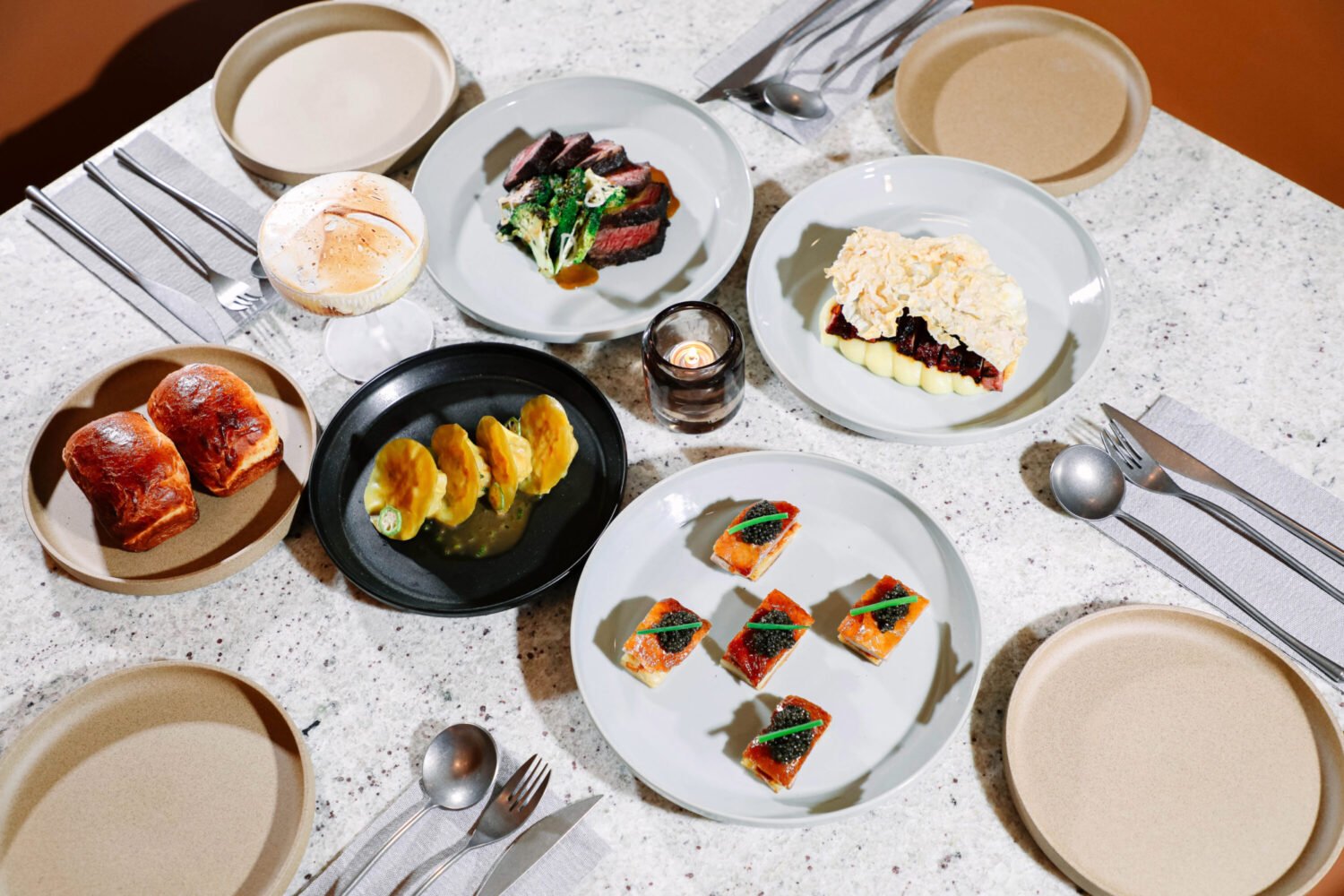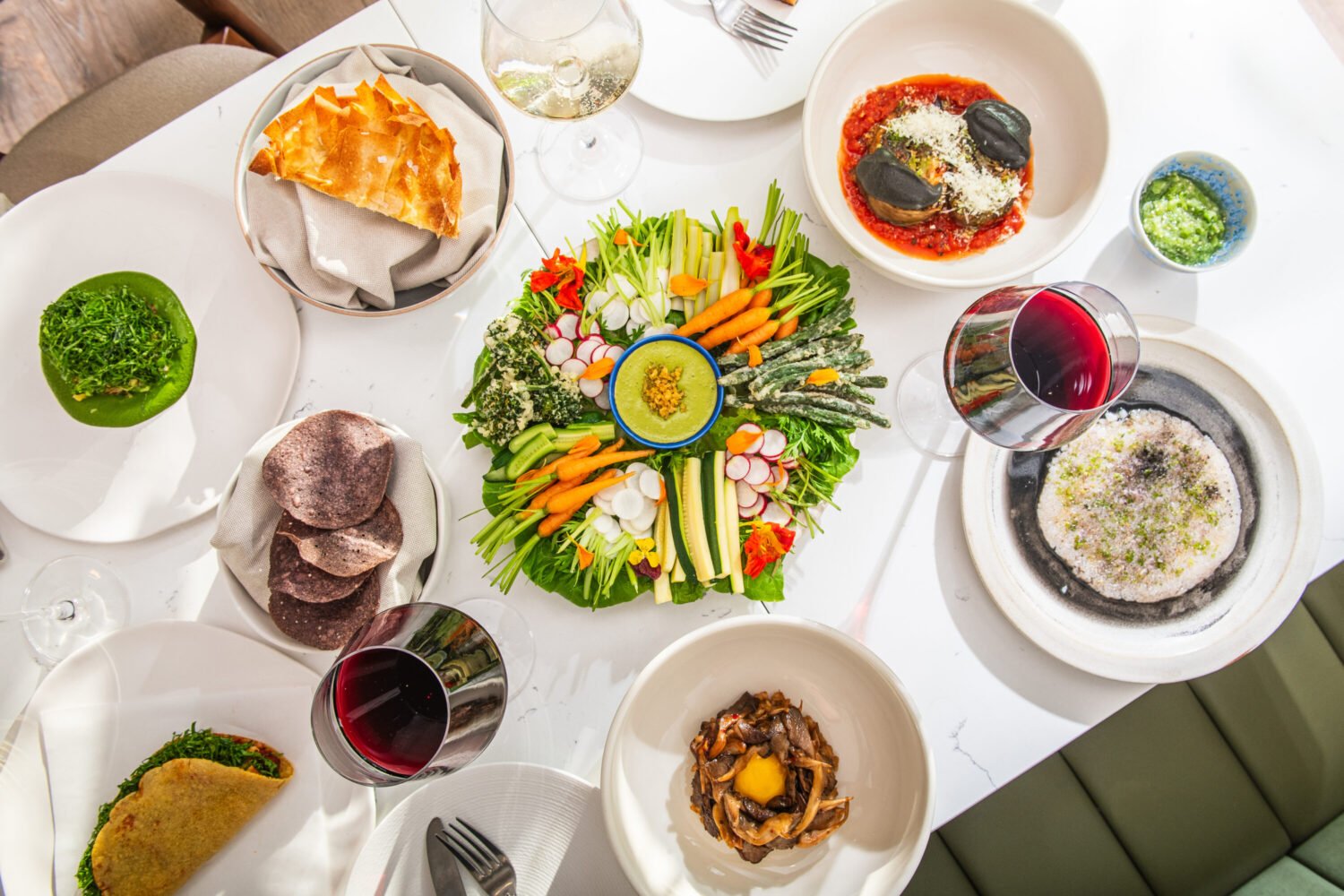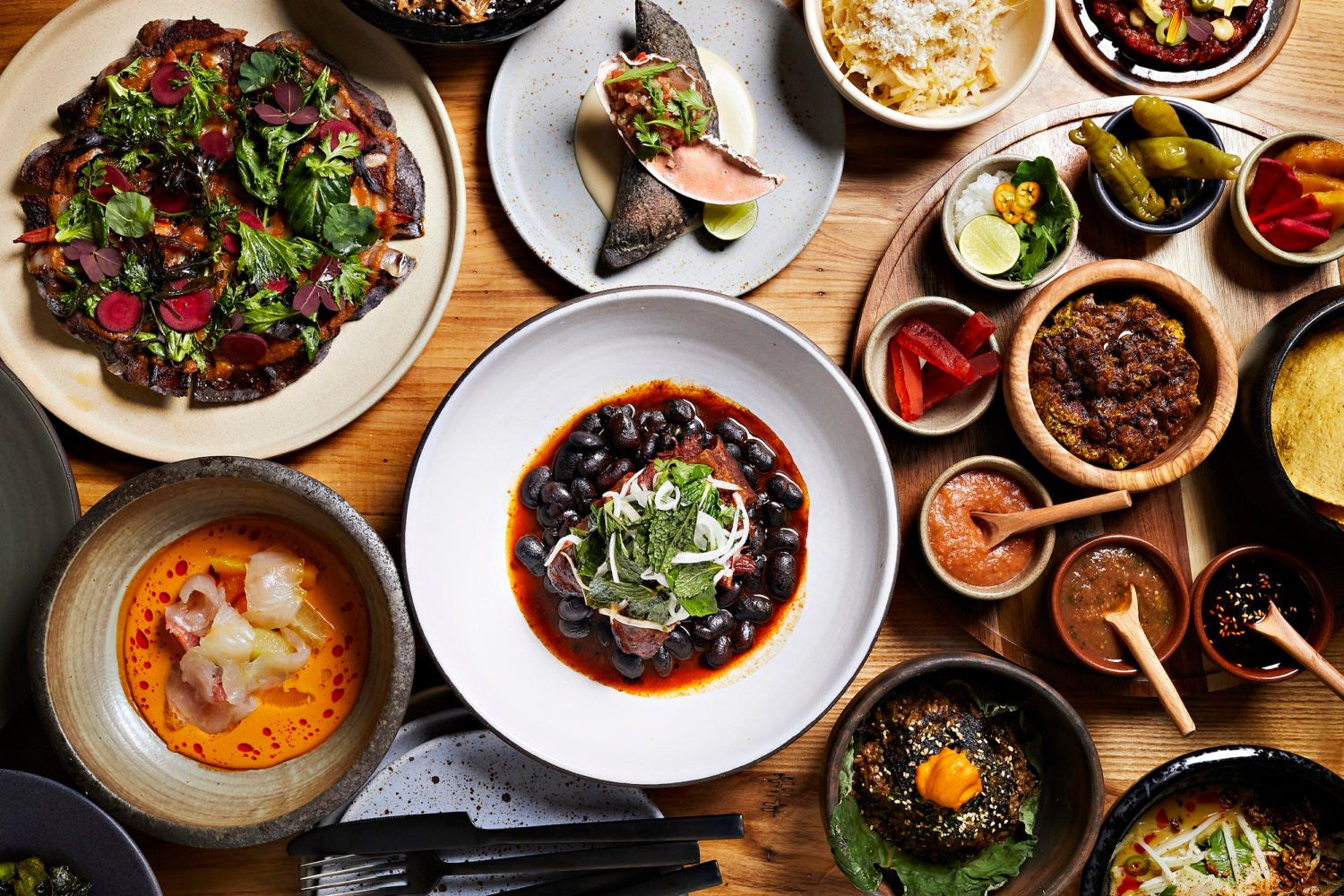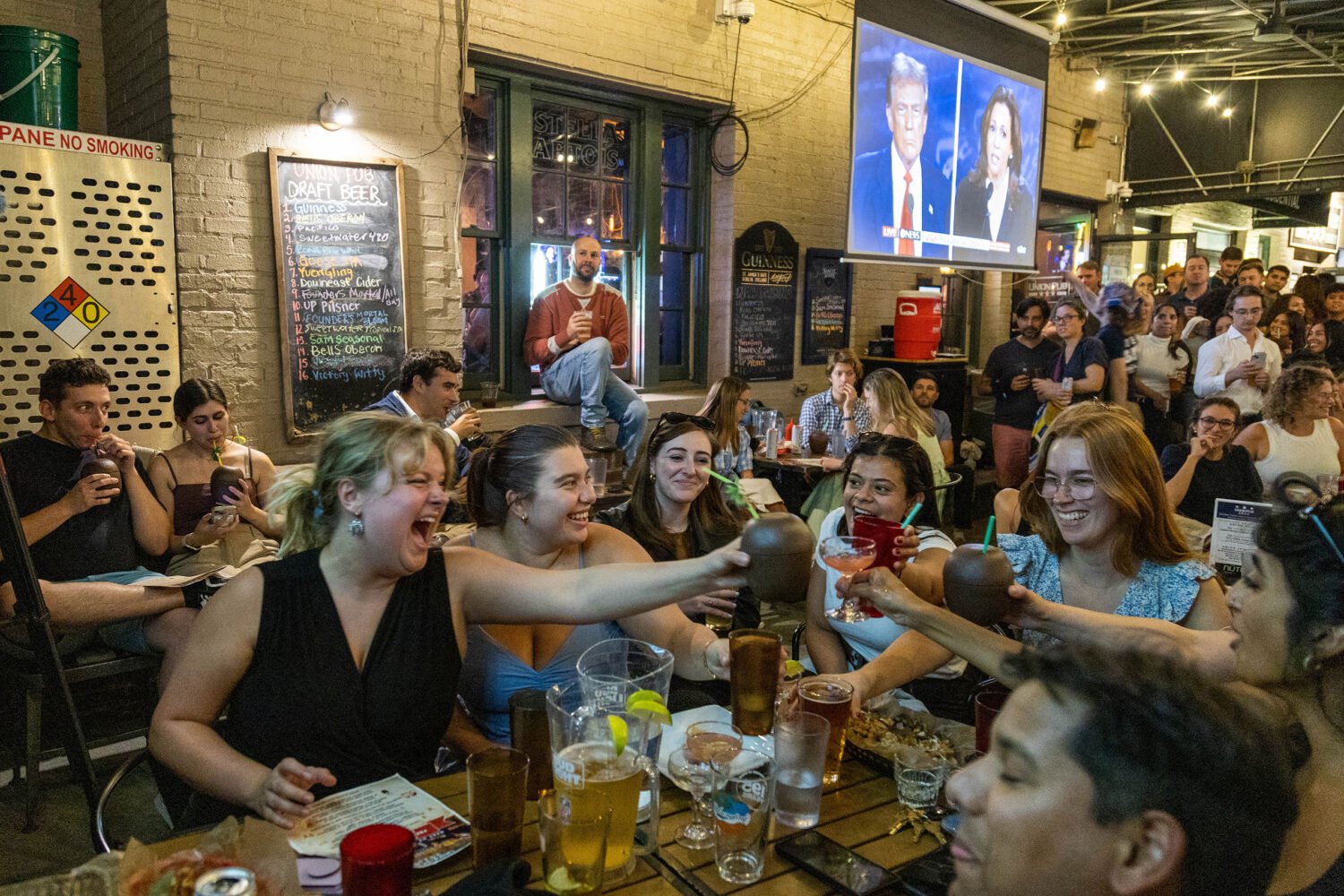location_on2501 Centreville Rd., Herndon
languageWebsite
The name “Country Oven” suggests a rustic bread bakery, a cozy cake shop, or somewhere you might pick up a few savory pastries for a brunch. And the place bearing that name, in a Herndon strip mall decorated with half-timbered faux European flair, won’t disappoint you in that regard. There are brilliant layer cakes, house-baked flatbreads, and flaky puffs filled with chicken or vegetables.
But if you stick to the baked goods, you’ll miss the jackfruit biryani, verdant Andhra Pradesh–style spicy chicken pulao, Chettinad goat (braised in a nutty masala with green chilies and curry leaves), and one of the best South Indian breakfasts—centered on dosas—in the Washington area.
When Sravan Paduru and Selvathambi “Thambi” Gangadhar bought Country Oven in 2012, it was a struggling bakery. They successfully reinvigorated the place with a pared-down menu of cakes, savory pastries, coffee, and chai.
“Affordable prices—that was our key when we started this restaurant,” Gangadhar says. “If a person is coming with even $5, with $1 chai and one puff he can have a good evening.”
But it took until 2024 for Country Oven to really come into its own. Last June, the pair took over the retail space next door and hired chef Ricky Reddy, a native of Hyderabad and a veteran of South Indian kitchens in the heavily Indian New Jersey suburbs.
Breakfast service starts at 8. Join early risers as they pick up tiny cups of steaming chai and dig into the classic elements of a South Indian morning meal: dosa (especially crisp and flavorful with a slight sourdough tang), idli (fluffy steamed rice cakes), vada (deep-fried savory doughnuts), upma and pongal (semolina or rice porridges studded with curry leaves and cashews), and seldom-seen ragi sankati (round lumps of finger-millet dough). Vibrant coconut and peanut chutneys get all this starch up on its feet.
As business picks up again in the late afternoon, Gangadhar and Paduru walk around conversing with their mostly South Asian customers, making recommendations in a blend of Telugu, Tamil, Hindi, and English. By around 8 pm, the place is thrumming with activity again.
Nearly every table at dinner orders one of the two dozen rice dishes. The options are split into biryanis and pulaos, a distinction based on cooking time, spice blend, and the method of layering ingredients. Beyond protein—some biryanis and pulaos are made with goat, some with chicken, others with paneer, egg, vegetables, or jackfruit—the variations take time and experimentation to understand.
“This much variety, nobody does it,” Gangadhar says. “We have a specialized chef for that.”
Case in point: There are five chicken-and-rice dishes, and Reddy shapes distinct flavor profiles for each using recipes and spice blends from Andhra Pradesh. Bezawada chicken biryani, from the coastal city of Vijayawada, has a subtle, mild heat, letting mint and a complex blend of spices into the foreground.
More is worth trying than you could conceivably eat in one visit. Reddy demonstrates virtuosity with classic Northern Indian standbys, too, so the butter chicken is better than most in the area. But save room for dessert. Jalebi and gulab jamun, classic South Asian sweet snacks, taste fresh and syrupy here—and the case full of mango and rasmalai layer cakes looks as tempting as a Wayne Thiebaud painting.
This article appears in the May 2025 issue of Washingtonian.


